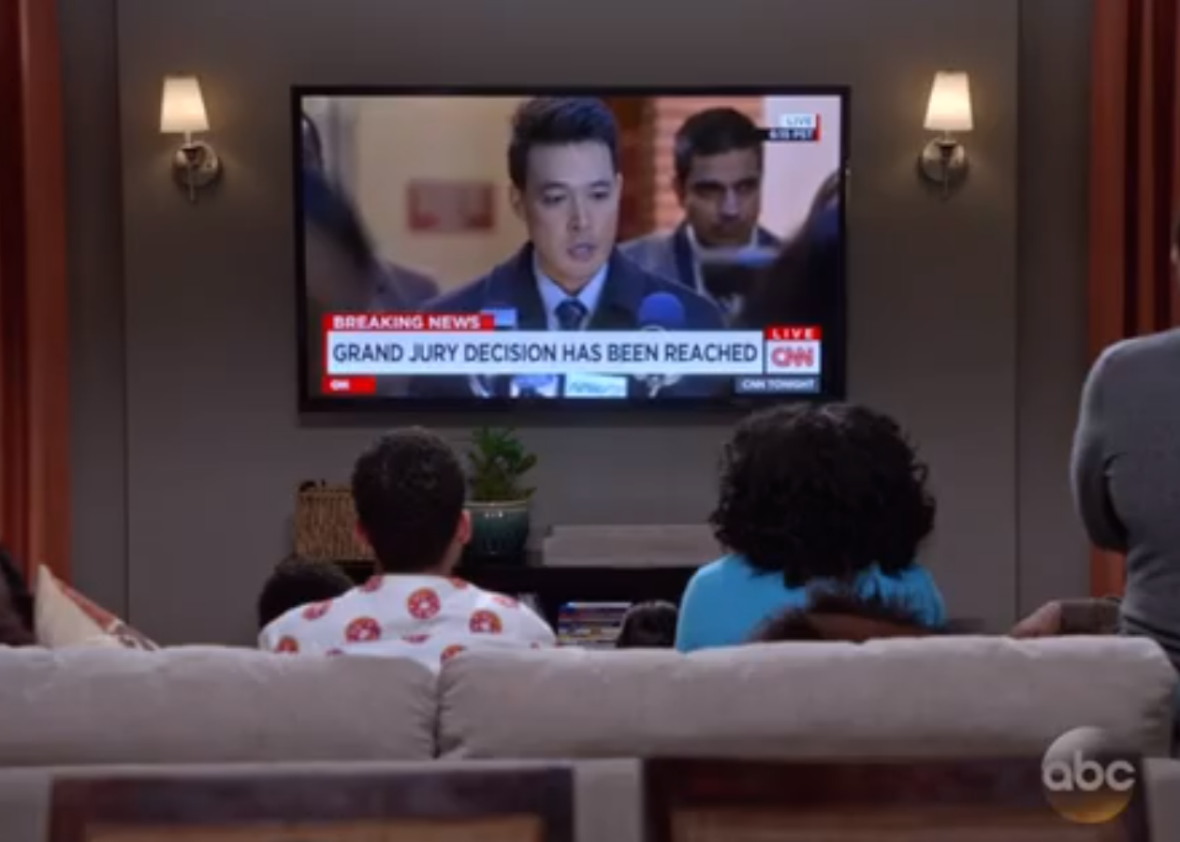From the very beginning, Black-ish announced itself, with its provocative name, as a show that was going to explicitly examine what it is like to be an upper-middle-class black family in a so-called “post-racial” society. Nearly every installment opens with narration from Dre (Anthony Anderson), the family patriarch, presenting a tongue-in-cheek thesis for the topic that will unfold that day (often with an accompanying newsreel-style montage): The kids are too spoiled; is corporal punishment OK?; my daughter’s dating a white dude!; what’s our policy on our kids and the N-word; the politics of code-switching.
Every episode of the show feels like a Very Special Episode. This is not a dig. It applies only to the series’ unabashed choice of hot-button topics, not the way in which it approaches them, which is with smart humor and unfailing nuance, the very things your typical VSE is not. There is always a counterargument to an argument, and a counter-counterargument to be made, as Dre and his family of very different and wacky personalities clash and bond and, yes, come to an understanding about any given topic.
And so last night’s “Hope” was the Very, Very Special Episode of Black-ish, taking on its most fraught and contemporary social issue yet: police brutality against people of color. Nearly all of it takes place in the Johnsons’ living room, with the entire family, including recurring characters Pops (Laurence Fishburne) and Ruby (Jenifer Lewis), gathered around the television to await a grand jury’s decision as to whether or not to indict a police officer involved in the latest unarmed black person encounter. (This victim was tased 37 times, apparently for selling bootleg DVDs.) What unravels is a series of deft, fiercely smart observations about what the rise of high-profile police incidents has done to people in the black community—how it unites them and angers them; how it forces some of us to shut down and tune out, or encourages others to cling wildly to a false sense of comfort.
It all unravels like a one-act play, with the banter and heated discussion flying effortlessly between each of the family members. Just when you think you can take a character’s statement at face value, it gets turned on its head, or another character provides a thoughtful twist to challenge that statement. When Ruby, purveyor of inappropriate (and sometimes, truly bigoted) mantras, makes the blanket statement that cops don’t care about black people, Junior, the eldest son, jumps in to say that “it’s a little more nuanced than that.” Dre’s harsh, but funny, reaction (“I can’t wait until a cop gets a hold of your ass”) is met with Junior finishing his thought—that while police “deserve a place in society,” considering the number of fatalities they’ve caused, “there might be some issues.” Ta-Nehisi Coates’ Between the World and Me plays a big part in the narrative, and the show holds it up as an important and influential book while also critiquing it. Sandwiched between all of these important issues are some truly funny and silly moments that keep the show from being weighted down too heavily, and nearly all of them work, whether it’s a dig at the plot holes in Trainwreck or a running gag involving what I suspect is oddly timed Chipotle product placement.
The key moment, however, lies in the most emotional part of the episode, involving Bow, the one who has expressed faith that the justice system will win out and who has tried to shield her two youngest children from the news, and Dre. Dre finally breaks down, on the verge of tears, after she brings up the word “hope”—and reminds her of the day of Barack Obama’s inauguration. As images of the president and first lady on that day appear, Dre challenges her: “We saw him get out of that limo and walk along side of it, and wave to that crowd. Tell me, you weren’t terrified when you saw that. Tell me you weren’t worried that someone was gonna snatch that hope away from us like they always do.” Unfortunately, he can’t sugarcoat these things for his young black children—their survival literally depends upon their loss of innocence.
It’s a direct slap in the face of the notion of a “post-racial” society. It’s a direct challenge to the idea of hope, too, not unlike the way Key & Peele’s excellent “Negrotown” sketch from last year was. Yet the episode “Hope” (as well as that sketch) doesn’t end on a bitter note, just a sobering one. The answers aren’t all there, but all of the questions and conflicting emotions that accompany them, are. In other words, it’s real—as real as the world that Dre wants, and needs, his children to understand.
Read more in Slate:
